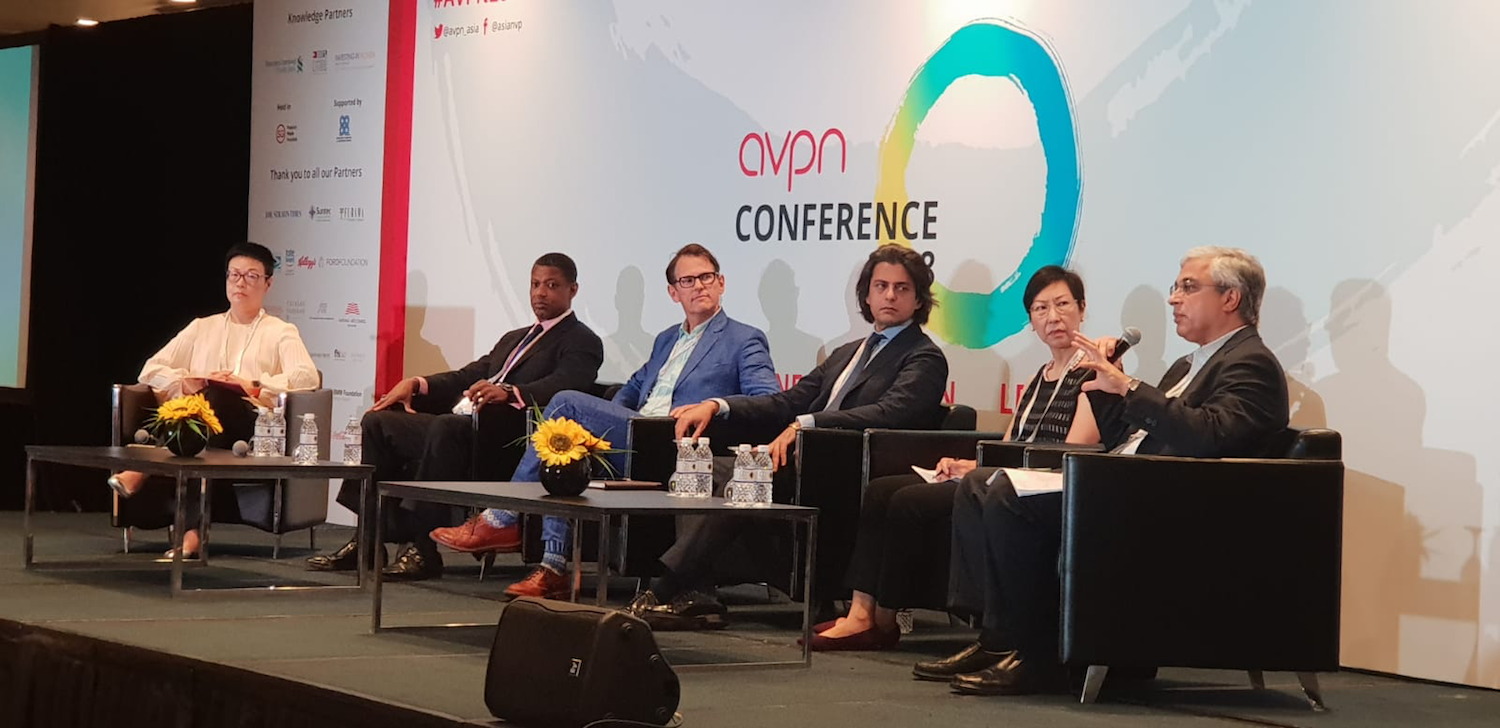Singapore, June 8 – The $1.4 trillion Government Pension Investment Fund of Japan is integrating environmental, social and governance, or ESG, factors into its investment practices, but private investors in Asia are lagging in adopting such risk-management frameworks.
Family offices, wealth management teams, private equity and venture capital funds in Asia are largely ignoring ESG approaches, according to a new report from Asian Venture Philanthropy Network and consultancy Oliver Wyman. Only 1% of total managed assets are invested using ESG practices, the report said.
That’s a far cry from rates of around 50% in Europe, Australia and New Zealand, 37% in Canada and 21% in the U.S., as of 2016, according to the Global Sustainable Investment Alliance.
The report, released at the AVPN’s annual conference in Singapore, suggests the performance of ESG-aligned funds is on par with their relevant benchmark and that ESG factors represents “enhanced risk management responses to the evolving complexity of global systemic risks.” So why such a slow uptake?
Lack of awareness about ESG practices, poor understanding of the standards, and weak regulatory support throughout Asia, says AVPN’s Martina Mettgenberg-Lemière.
Market rate returns
“A lot of people who start out feel they might not achieve the same performance with ESG investing since they almost see it as philanthropic,” Mettgenberg-Lemière said. “If you do it right, you can achieve market rate returns and many investors have gotten started and see that and find the right funds.”
She added that weak regulatory support means investors have to find their own way. The welter of ESG standards makes it difficult to identify the most effective ESG practices.
Japan’s pension fund, the largest in the world, in recent years has been moving more of its assets into ESG-aligned portfolios. In April, the GPIF along with the World Bank released a study that found incorporating ESG factors in fixed-income investing can help manage risk and stabilize returns.
>>MORE: Institutional Shift: Long-term asset owners move to future-proof their portfolios (podcast)
Hong Kong now has mandatory ESG disclosure requirements for listed companies and recently released its first overview of the reports submitted by companies. The Japan Exchange Group and Singapore Exchange have partnered with U.N. Sustainable Stock Exchanges to promote sustainable investing.
Generational shift
A generational shift and transfer of wealth could accelerate adoption of not only ESG, but of impact investing, an even more ambitious approach. While ESG factors help identify “best in class” companies, impact investments seek to intentionally drive measurable progress on social or environmental goals. An estimated 35% of Asia’s wealth will be in the hands of Millennials in the next five to seven years.
>>MORE: A Q&A with Annie Chen: The path to a 100% sustainable and mission-aligned portfolio
Patriarchs of family offices still segregate philanthropy and investing. Big banks and financial institutions may be reluctant to educate stakeholders about the value of ESG criteria.
“The ecosystem hasn’t been completely built in Asia,” Evonne Zou, Director, Social Impact Partners Limited (SIP) in Hong Kong, said. “In Hong Kong it is still more about traditional philanthropy. I see the interest in impact investing growing, but it is not organized, people are doing their own things, and not in a structured way.”
Standard Chartered Private Bank surveyed 400 wealthy investors in Singapore, Hong Kong, China and India about their sustainable investment motivations. The report found that Millennials, aged 20-34, primarily in China and India, expect financial yields from sustainable investments to be higher than traditional investments. Generation X investors, aged 35-49, see such investments in more philanthropic terms and accept a tradeoff between financial returns and social impact.
“The millennials tend to be savvier in understanding that they do not always need to sacrifice financial gains to make a positive impact, which will be a key differentiator in further developing the ecosystem and moving sustainable investing into the mainstream,” said Standard Charter’s Vic Malik.
Deep understanding of sustainable investing remains low. Standard Chartered found that investors in Asia are looking to increase sustainable investments by an average of 19% over the next three years. Yet only 16 % of investors could provide a partially correct definition of sustainable investing.
“At the moment [impact investing] comes across as complex but really it is incredibly simple,” Mettgenberg-Lemière said. “You have to get your own mandate right, then you scour the market for what fits with that. Find the right fund manager, find the companies, and then it becomes really simple. You have to get your own vision right.”











